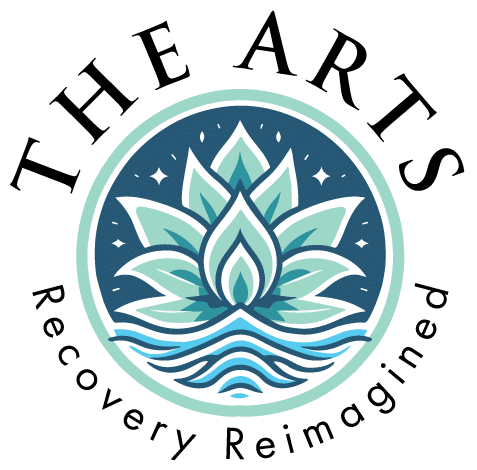The Importance of Long-Term Aftercare in Dual Diagnosis Recovery
Dual diagnosis aftercare refers to the ongoing support and treatment strategies provided to individuals with co-occurring mental health and substance use disorders after completing an initial treatment program. This aftercare design is to help individuals maintain their recovery and prevent relapse by addressing the addiction and the underlying mental health issues that often contribute to it.
Individuals with a dual diagnosis of a substance use disorder and additional mental health concerns like depression or anxiety might need to include regular therapy sessions with a counselor, support groups, medication, and ongoing monitoring and assessment to help stay on track with their recovery goals. Oftentimes, individuals struggle with maintaining both their mental health and their sobriety in the weeks and months following intensive treatment.
The ARTS is a drug rehab in Canoga Park that can help with comprehensive treatment.
The Importance of Dual Diagnosis Aftercare for Long-Term Recovery
One of the biggest challenges for individuals with a dual diagnosis is the risk of relapse. Without comprehensive aftercare, it’s too easy to slip back into old negative behavior patterns and find themselves struggling with substances again. Dual-diagnosis aftercare provides the ongoing support and resources needed to maintain sobriety and mental wellness.
In aftercare, individuals with a dual diagnosis can continue to work through the issues that led to their addiction in the first place, learn new coping skills and techniques, and build a support system of peers and professionals who can help them stay on track. Aftercare can also provide a safety net for individuals struggling with their mental health by giving them access to the care and support they need to manage new and continuing symptoms and prevent relapse.
The Role of Continuing Care Plans in Dual Diagnosis Aftercare
One of the critical components of dual diagnosis aftercare is the development of a continuing care plan. This continuing care plan outlines the ongoing treatment and support strategies that are in place to help the individual maintain their recovery over time.
Continuing care plans typically include various components, such as regular therapy sessions, medication management, participation in support groups, and ongoing monitoring and assessment. The design of care plans ensures flexibility and adaptability so that clients can adjust treatment and support needs over time as their recovery progresses.
Developing a continuing care plan with a mental health professional, ensures that clients have the ongoing support and resources needed to maintain their sobriety and mental wellness.
Relapse Prevention Techniques in Dual Diagnosis Aftercare
Relapse prevention techniques are a critical component of dual diagnosis aftercare. These techniques help individuals identify triggers and warning signs that could lead to a relapse and provide them with the tools and strategies to manage these situations effectively.
Some standard relapse prevention techniques used in dual diagnosis aftercare include:
- Cognitive-behavioral therapy (CBT) helps individuals identify negative thought patterns and develop new, healthier ways of thinking and behaving.
- Mindfulness meditation can help individuals manage stress and anxiety more effectively.
- Motivational interviewing helps individuals identify their reasons for wanting to maintain their sobriety and develop strategies to overcome any obstacles that might arise.
Learning and practicing these and other relapse prevention techniques, individuals with a dual diagnosis can significantly reduce their risk of relapse and maintain their recovery over the long term.
Dual Diagnosis Aftercare Programs and Services
Various dual-diagnosis aftercare programs and services are available to individuals in recovery. These might include:
- Outpatient treatment programs provide ongoing therapy and support for individuals who have completed an initial treatment program.
- Support groups, such as 12-step programs or SMART Recovery, offer a supportive community of peers in recovery.
- Mental health services, such as therapy or medication management, can help individuals manage their mental health symptoms and prevent relapse.
By exploring these and other dual diagnosis aftercare programs and services, individuals can find the resources and support they need to maintain their sobriety and mental wellness over the long term.
How to Create an Effective Dual Diagnosis Aftercare Plan
Creating an effective dual-diagnosis aftercare plan involves several key steps. These might include:
- Meet with a mental health professional to assess your ongoing treatment and support needs.
- Identify relapse triggers and warning signs and develop strategies to manage them effectively.
- Establish a support system of peers, family members, and mental health professionals who can provide ongoing support and guidance.
- Developing a continuing care plan that outlines your ongoing treatment and support needs and adjusting this plan over time as your recovery progresses.
Individuals can significantly increase their chances of maintaining their sobriety and mental wellness over the long term by taking these and other steps to create an effective dual diagnosis aftercare plan.
Dual-Diagnosis Recovery with ARTS IOP
Mental health treatment in San Fernando Valley is essential for long-term recovery from addiction and co-occurring mental health disorders. By participating in ongoing therapy and support programs, utilizing relapse prevention techniques, and accessing the resources and tools available, individuals with a dual diagnosis can build a solid foundation for recovery and thrive in all areas of their lives.
If you or someone you love is struggling with addiction and a co-occurring mental health disorder, consider contacting The ARTS IOP. Our holistic treatment approach focuses on total body, mind, emotional, and spiritual well-being.
The ARTS IOP helps individuals rediscover the best parts of themselves as they work towards lasting recovery and wellness.

